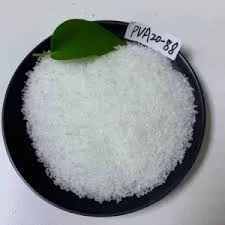Adhesive Methyl Cellulose A Versatile Material in Modern Applications
Methyl cellulose, a chemically modified cellulose derivative, has gained significant attention across various industries due to its unique properties. One of its notable applications is as an adhesive, where its versatility and performance have made it an essential material in both industrial and consumer products.
What is Methyl Cellulose?
Methyl cellulose is produced by methylating cellulose, a natural polymer derived from plant cell walls. This modification provides methyl cellulose with unique characteristics such as water solubility, gel formation at elevated temperatures, and excellent film-forming abilities. These properties make it suitable for a myriad of applications, particularly as an adhesive in different contexts.
Properties of Adhesive Methyl Cellulose
1. Water Solubility One of the defining features of methyl cellulose is its solubility in water. This property allows for easy application and cleanup, making it user-friendly in various settings. When mixed with water, it forms a smooth, viscous solution that can easily be applied to surfaces.
2. Thermal Gelation Unlike many other adhesives that require heat to set, methyl cellulose exhibits a unique behavior—when heated, it transitions from a liquid state to a gel. This thermal gelation property is particularly advantageous in applications where reworkability is needed. Once the substance cools down, it can revert to its original form, enabling adjustments in positioning before final adhesion occurs.
3. Viscosity Control The viscosity of methyl cellulose can be easily adjusted by altering its concentration in water, allowing for customized application. This flexibility makes it suitable for various substrates and requirements, whether a thick, paste-like consistency or a thin, easily spreadable layer is needed.
4. Non-Toxicity As a cellulose derivative, methyl cellulose is considered safe for use in food and pharmaceutical products. Its non-toxic nature allows it to be used in applications where contact with skin or food is expected, further broadening its usability.
adhesive methyl cellulose

Applications in Industry
1. Construction In the construction sector, methyl cellulose is used as a thickener and binder in cementitious materials. Its ability to improve workability and water retention makes it an invaluable component in tile adhesives, plasters, and joint compounds. Its properties help enhance the durability and adhesion of these materials, ensuring long-lasting results.
2. Food Industry Methyl cellulose is often used as a food additive, serving as a thickener and stabilizer. Its application in food science extends to creating low-fat products that mimic the texture and mouthfeel of traditional high-fat foods. When used as an ingredient in processed foods, it can help enhance texture while reducing overall fat content.
3. Pharmaceuticals In the pharmaceutical industry, methyl cellulose serves as an excipient in drug formulations. It is used to create sustained-release tablets and to improve the solubility of certain active ingredients. Its gel-forming capability also makes it suitable as a coating agent for capsules.
4. Arts and Crafts The crafting community has embraced methyl cellulose for its adhesive properties. It is commonly used in paper crafts, as it dries clear and flexible, making it perfect for intricate designs. Additionally, its ability to be reactivated with moisture allows artists to adjust their work without damaging it.
Conclusion
Adhesive methyl cellulose exemplifies how a natural polymer, when modified, can serve various modern applications across multiple industries. Its unique properties of water solubility, thermal gelation, viscosity control, and non-toxicity provide users with an effective and versatile adhesive option. As industries continue to seek sustainable and efficient materials, methyl cellulose stands out as a reliable choice in both industrial and consumer domains.
In the ever-evolving landscape of material science, the role of adhesive methyl cellulose is likely to expand, paving the way for innovative applications that leverage its beneficial properties. Whether in construction, food production, pharmaceuticals, or the arts, methyl cellulose represents a remarkable intersection of nature and technology, highlighting the potential of harnessing natural polymers for modern needs.
-
The Application and Significance of Construction RdpNewsMay.19,2025
-
Industrial Grade HpmcNewsMay.19,2025
-
Building Coating Adhesive Building Coating Adhesive HpmcNewsMay.19,2025
-
Application Of Hpmc For Detergent For Detergent In DetergentsNewsMay.19,2025
-
Application Of Hpmc Cellulose In Cement-Based MaterialsNewsMay.19,2025
-
Application Of High Quality Hpmc For Construction In The Field Of ConstructionNewsMay.19,2025




